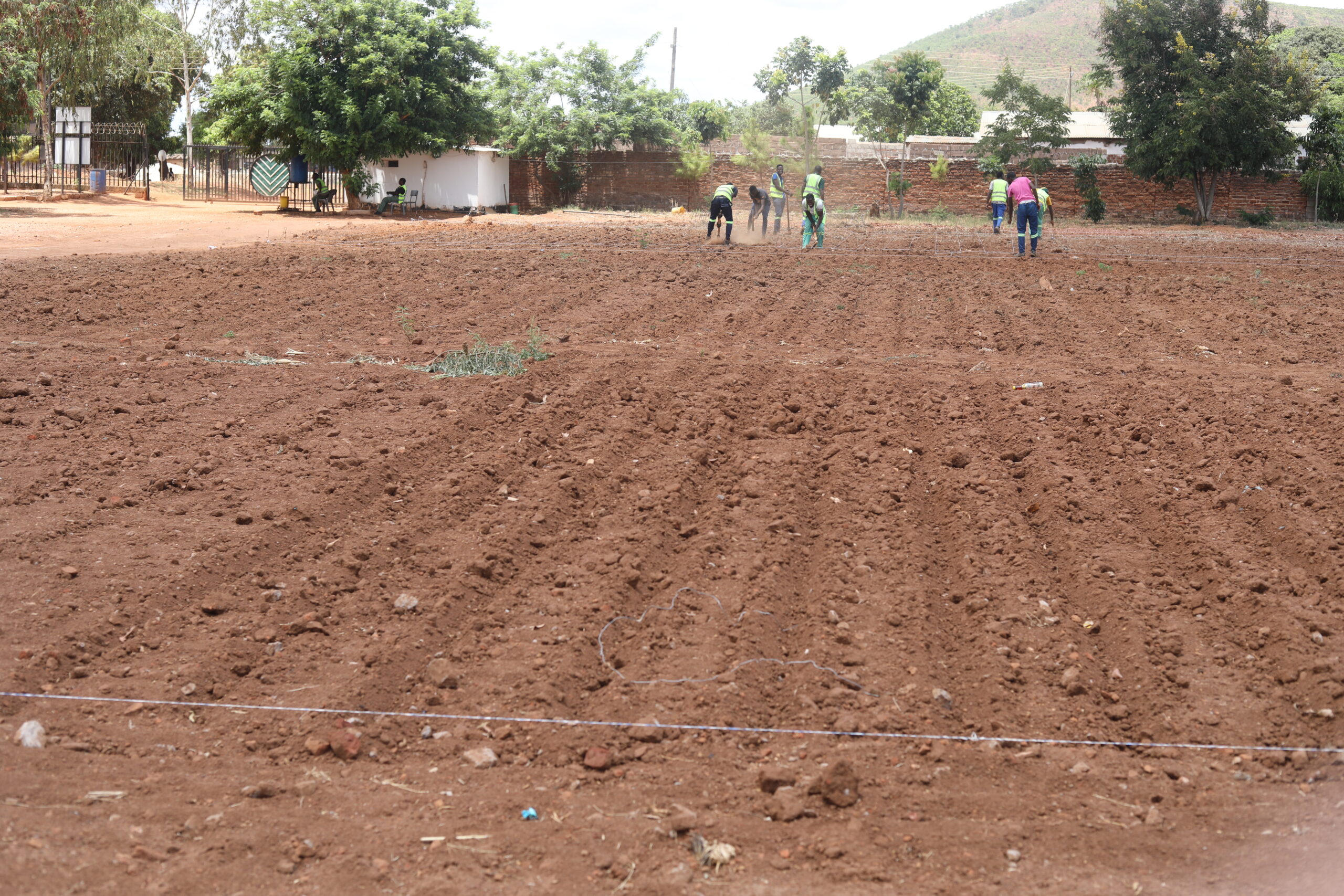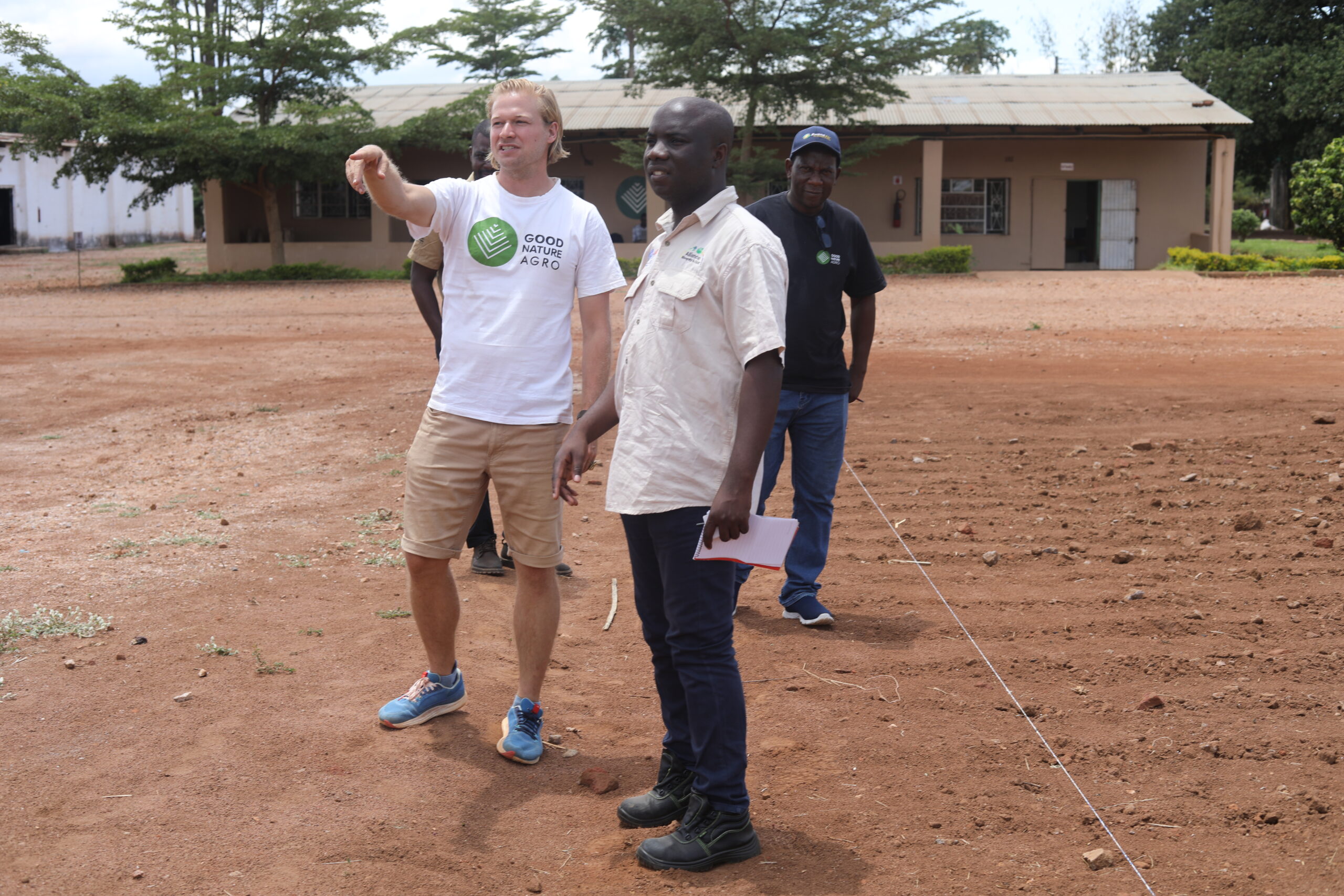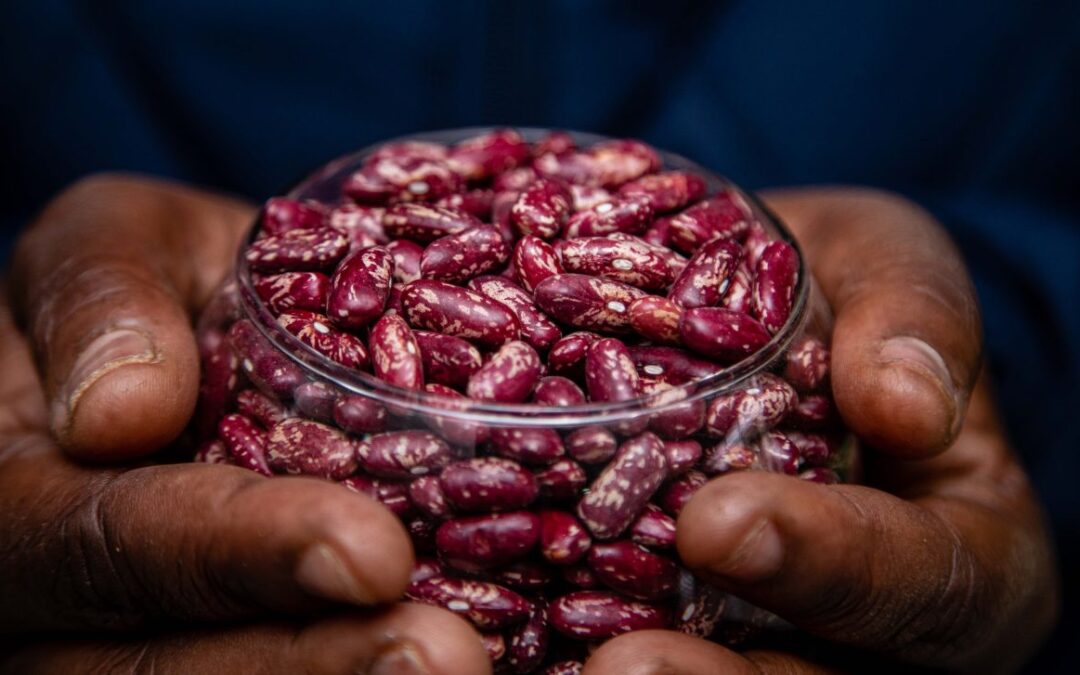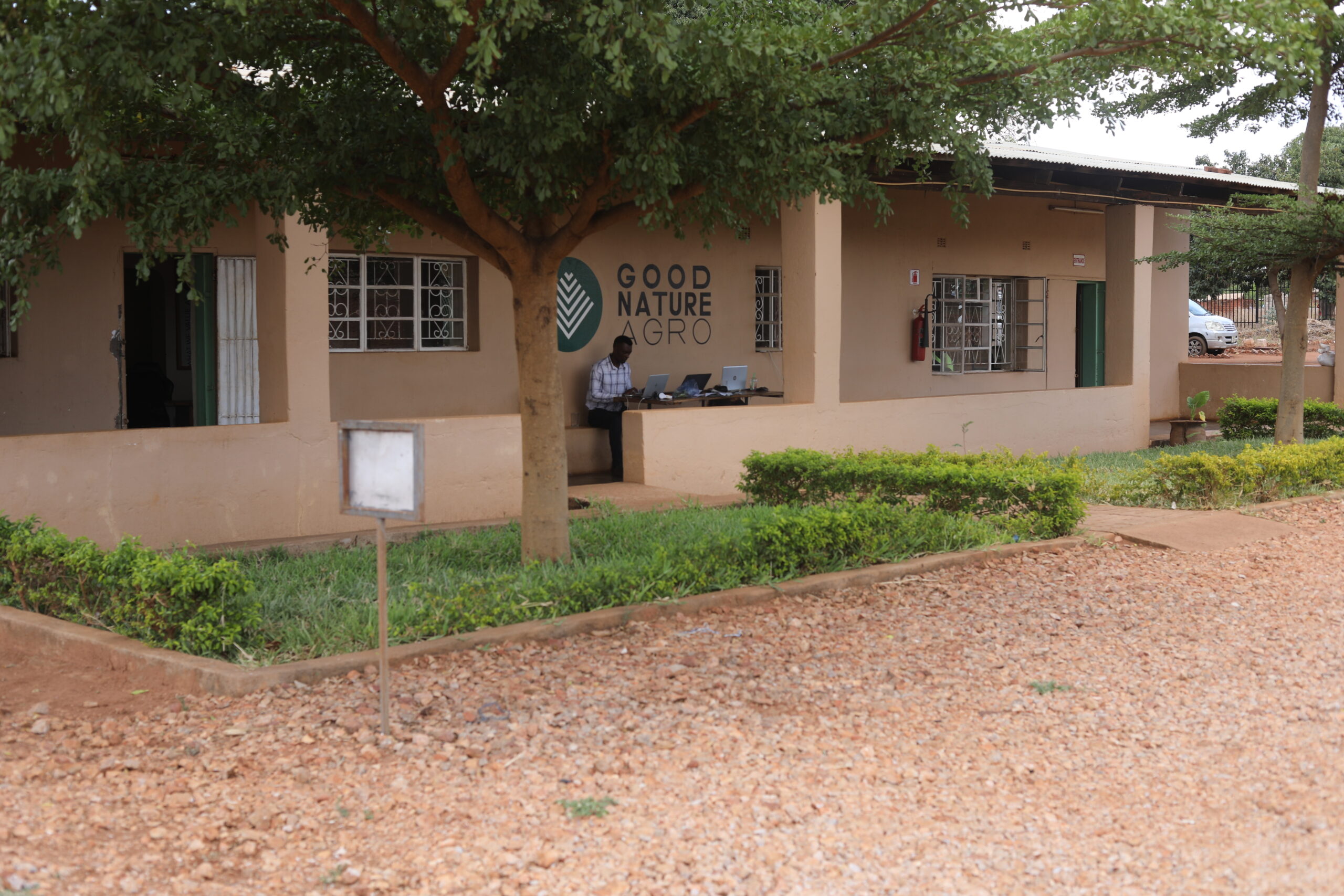By Yohane Chideya1, Wilson Nkhata1, Mwiinga Mulube2, Paul Aseete1, Carl Jensen3 and Jean Claude Rubyogo1
1 Alliance of Bioversity International and CIAT/PABRA
2 Zambia Agricultural Research Institute
3 Good Nature Agro
Zambia’s largely rural population depends heavily on agriculture, with around 60% of households involved in farming and more than half relying on it for their livelihoods. A notable crop is the common bean, particularly iron beans, which were cultivated by over 287,000 farmers in Zambia in 2023. Iron beans are valued for their role in combating iron deficiency, especially among young women.
Mbereshi beans, often celebrated as a “magical nutritional powerhouse,” are one of Zambia’s most popular iron-rich biofortified bean varieties, alongside Kabulangeti and Lungwebungu. Research indicates that cultivating and consuming Mbereshi beans not only boosts income and enhances food and nutrition security but also strengthens resilience to climate change.
In addition to their numerous benefits, Mbereshi beans are an early-maturing variety, reaching maturity in 80 to 85 days. They exhibit disease tolerance and can yield up to two tons per hectare. This sugar bean variety, developed by the Alliance of Bioversity International and CIAT through the Pan-Africa Bean Research Alliance (PABRA-Africa) in collaboration with the Zambia Agricultural Research Institute (ZARI), is also rich in protein, phosphorus, zinc, iron, vitamin B1, and fiber.
The transformative impact of common beans on food systems and livelihoods is immense. Despite facing challenges such as pests, diseases, drought, and seed shortages, ZARI reports a notable increase in bean production in Zambia. In 2023, production reached over 88,000 tons, a significant rise from 49,000 tons in 2021. On top of that in the past 15 years, bean productivity has doubled from 350 kg/ha to 650 kg/ha, with the land under bean production going up from 65,360 ha to 100,000 ha in the same period, thanks to various interventions including efficient seed systems.
Strengthening local seed systems
Understanding the vital role of common beans in providing protein and essential micronutrients for children and expectant mothers, PABRA is committed to collaborating with various stakeholders. The goal is to enhance the benefits of bean consumption and accelerate the crop’s utilization. Through the Accelerated Innovation Delivery – Initiative (AID-I), a venture funded by the Feed the Future through the United States Agency for International Development (USAID) and SeedEqual of the CGIAR, PABRA is expediting the last-mile delivery of agricultural tools, technologies, and production methods for different bean varieties.
AID-I is boosting productivity, efficiency, and incomes for smallholder farmers, small and medium agricultural enterprises, and national partners across sub-Saharan Africa, including in Malawi, Zambia, and Tanzania. Their efforts are focused on improving food production and maintaining agricultural sustainability.
The AID-I complements the Seed Equal initiative, a market-driven demand-led seed systems approach, developed by PABRA. It supports the delivery of improved, climate-resilient, market-preferred, and nutritious varieties of priority crops. Notably, it has greatly boosted bean seed production in Zambia, with Early Generation Seed production increasing by 221.4% and certified and quality-declared seed production growing six-fold between 2021 and 2023. Furthermore, new varieties now make up 88% of the seed produced, significantly enhancing varietal turnover.
The growing importance of iron beans highlights the successful collaboration between researchers, seed companies, farmers, and other stakeholders. For Zambian social enterprises like Good Nature Agro (GNA), this represents a valuable opportunity to invest in strengthening local seed systems. By actively engaging in bean breeding, they can help enhance the availability of high-quality varieties that meet the preferences of end-users.
Established in 2014, GNA operates with its headquarters in Chipata and a secondary base in Lusaka. The company emphasizes a farmer-centric approach, working closely with rural small-scale subsistence farmers. GNA empowers these farmers to grow high-quality legume seeds, which are initially developed by the company and then propagated through smallholder seed enterprises.
With 600 hectares dedicated to annual bean seed production, GNA typically harvests around 500 metric tons of bean seed each year. Using an 80 kg seed rate, this quantity can cover approximately 6,250 hectares, reaching over 4,000 farmers, 40% of which are women. GNA contracts a large percentage of those farmers to produce the commodity on contract, exporting over 2,000 metric tons of beans in 2024.
Carl Jensen, Co-Founder and Chief Executive Officer of GNA, highlights that this model has significantly improved farmers’ livelihoods. He is confident in the potential and importance of common bean farming in Zambia’s agricultural sector, noting its critical role in providing dietary calories and protein while transforming farmers’ lives.
Jensen anticipates further interventions as common bean farming in Zambia advances, fueling a desire for additional investment. He shared, “We have a breeding program underway in various regions of the country and conduct on-farm demonstrations to promote best agricultural practices among farmers. We are also establishing more trial sections here in Chipata, including one for the navy bean variety and another for red kidney beans.”
Relishing new opportunities
Through the AID-I and SeedEqual (WP2 –Legumes) of the CGIAR, (Making the Bean Corridor work: Lessons from Zambia) and the demand-led seed system approaches, the strategies aim to transform bean value chains by stimulating investments from both the public and private sectors. The primary goal is to enhance bean productivity, increase commercialization, and promote greater consumption across Africa. These models facilitate the connection of all stakeholders within the value chain, encouraging the sharing of needs and solutions to overcome bottlenecks, ultimately expanding the benefits of beans in an inclusive manner.
Wilson Nkhata, Coordinator for the Southern Africa Bean Research Network (SABRN), highlights the collaborative spirit of this initiative. “This investment allows PABRA to partner with Good Nature Agro to enhance bean seed systems. Our aim is to work with the private sector to speed up the delivery of new and improved bean varieties. Breeding is an ongoing process, and we have several varieties in the pipeline that we plan to release, scale up, and accelerate with partners like GNA,” explains Nkhata.

Labourers seen clearing land at the GNA premises in Chipata in preparation for bean trials – Photo by Yohane Chideya
PABRA’s agreement with GNA facilitates the sharing of advanced materials. Under this arrangement, the profit-driven social enterprise is testing and selecting bean varieties, with the goal of identifying the top three for release into the Zambian market.
GNA will assess the advanced lines of Mbereshi red-mottled beans and select the best candidate. Upon release, this will grant them exclusive rights to commercialize the varieties in neighboring countries, including Tanzania, Angola, DR Congo, and Zimbabwe.
For GNA, this multi-stakeholder arrangement enhances the company’s vision of not only addressing the seed deficit but also improving agricultural advisory services and overcoming farmers’ challenges in accessing favourable input and output markets.
“Having a superior Mbereshi red-mottled variety will put us in an excellent position. The bean breeding program will enable us to make informed selections, evaluate them, and secure the support needed for their release,” Jensen adds, noting that GNA will be expanding its breeding program to Malawi.

Jensen (left) with Nkhata during a recent visit to Good Nature Agro’s premises in Chipata – Picture by Yohane Chideya
Recognizing that common beans can drive a diversified, export-oriented agricultural sector and offer significant value to smallholder farmers, GNA is excited about establishing a state-of-the-art factory for legume commodities in Lusaka. Additionally, the company plans to enhance its seed production, research and development capabilities at its historic headquarters in Chipata.


